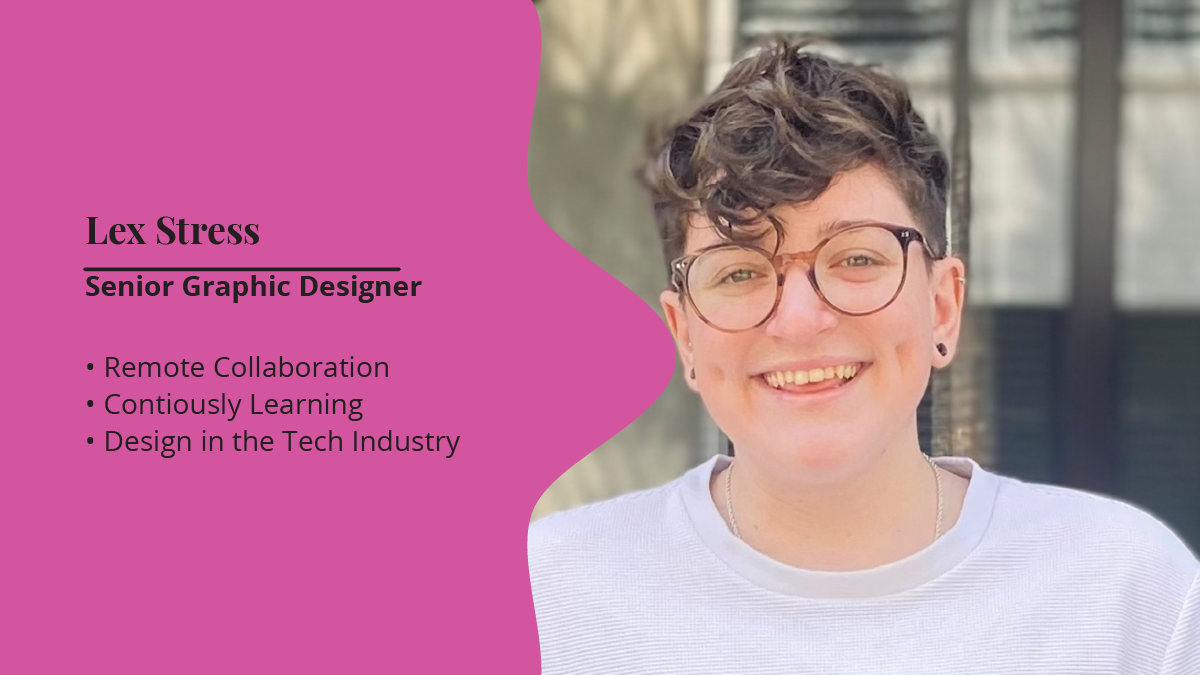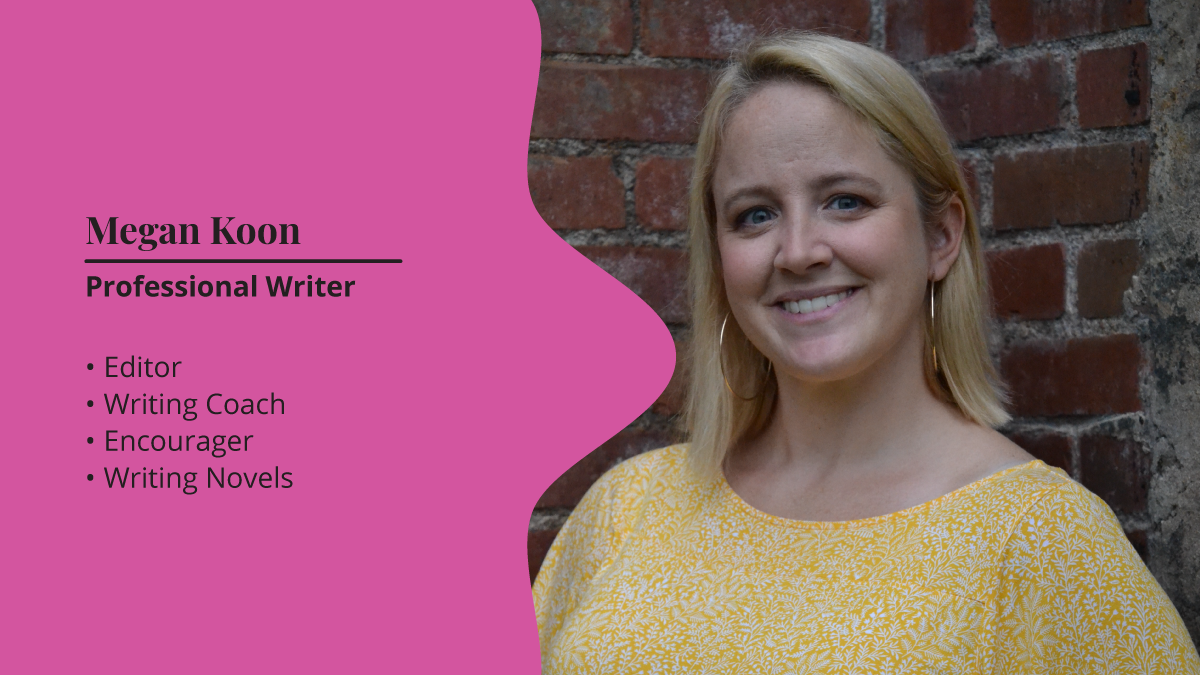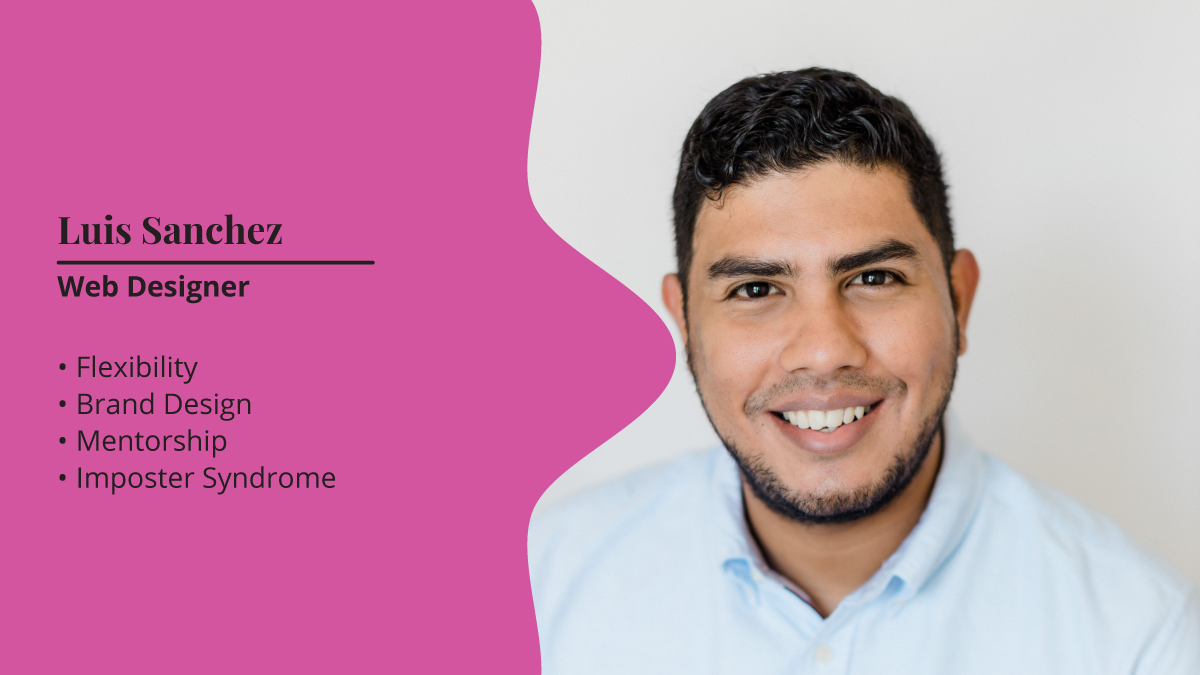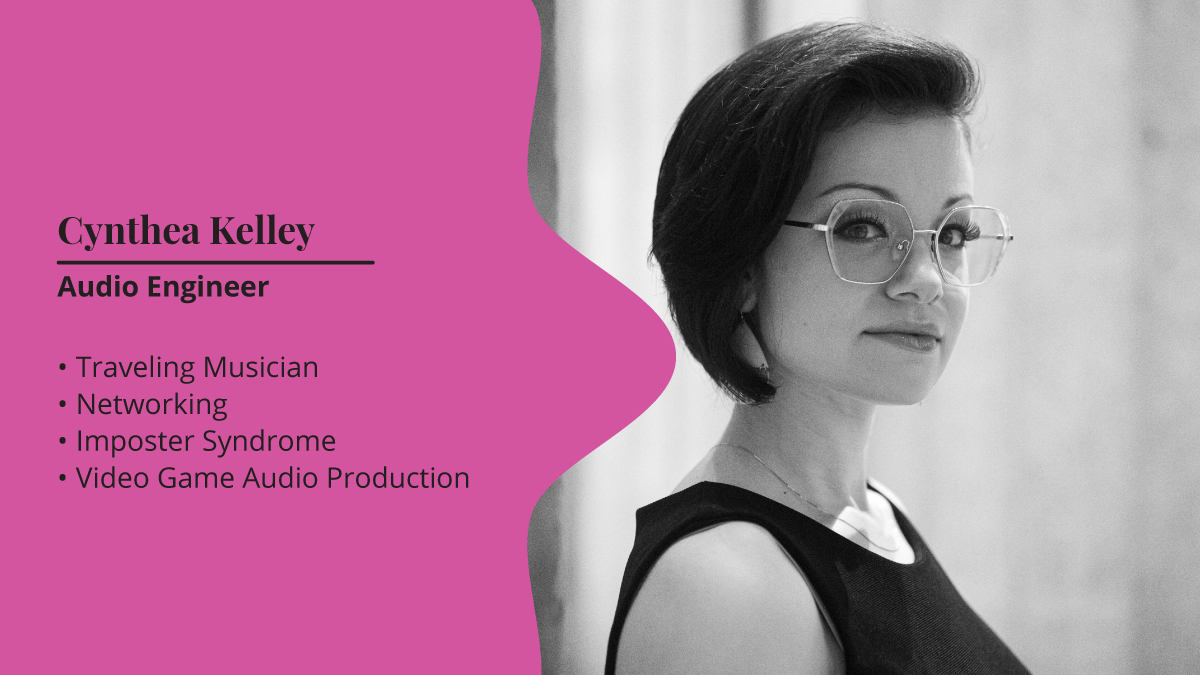“The networking piece is huge for just trying to overcome how hard it is to get your foot through the door.”
Lex Stress is a Coastal Carolina University (CCU) alumnus with a degree in graphic design. Initially from outside Philadelphia and now residing in Charleston, S.C., they are the Principal Graphic Designer for the higher education software company Ellucian.
Interview
Transcript
Lex Stress
My name is Lex Stress. I’m originally from outside of Philadelphia. But I’ve been in the Charleston area for almost 10 years now.
Emma Plutnicki
Nice. And so what do you do for work? And what’s your official job title?
Lex Stress
My official title is a senior graphic designer, I work at a company called Ellucian, and they are a higher education software company.
Emma Plutnicki
Cool, and how long have you been working there?
Lex Stress
It’s been probably about two and a half years now.
Emma Plutnicki
Nice. And that’s in Charleston.
Lex Stress
So it, so I work remotely, so like 100% remote. So I am in Charleston. The actual company is headquartered out of D.C., but they have it’s like a global company. So they have offices all over the world. And I work with people all over the world too.
Emma Plutnicki
Cool. How did you end up in this field? How did you hear about it? How did you know that this was an actual path that you could take?
Lex Stress
Um, that’s a great question. So, when I first graduated from Coastal, I actually started at a candle packaging company, and was like a designer for candles, their whole world marketing everything. And I actually only worked there for about six months. And, every day on my commute, I always passed Blackbaud, which is, like, a pretty big tech company here in Charleston. And they actually had a graphic design position open up. Somehow, they like, really believed in me. And I got that position. And that really opened my world to the tech industry, working in software and being like a more in-house designer for those kinds of companies.
Emma Plutnicki
So cool. So what, what did you study at Coastal? What was your background that kind of led you into this role?
Lex Stress
Yeah, so. I was a transfer student at Coastal. So, I studied graphic design, I came in as a junior. And so, I did two years at Coastal, and prior to that, I was also I got my Associate’s in design as well. So, I just, I, wanted to get my Bachelor’s, and so I kind of finished everything out at Coastal. So, yeah, graphic design.
Emma Plutnicki
Cool. And so, now of day’s, what does a typical workday look like for you? What are your responsibilities? What are you expected to make in a day? And what does that look like?
Lex Stress
It can be kind of crazy. But basically, like I will spend my day, there, there’s a lot of variety in my role. So it really just depends on the day and the project. Like, it could be making social media graphics. It could be email banners. Right now, the biggest project we’re working on is event identities for our annual conference. So, that includes so many things like on-site graphics. I just created the registration website, just like kind of anything that goes into that conference we’ve been working on. We also have a lot of Zoom meetings since we are remote. So that’s kind of where the collaboration comes in, is through having those meetings. But really, it just. It can be anything. Which I do like. I like having the variety. And, I think it’s it’s good to cue; it helps keep me creative too, like, being able to do something a little bit different every day.
Emma Plutnicki
Yeah. So do you have any challenges with staying creative? Or is it like, what are your main challenges that you face on a day-to-day basis?
Lex Stress
I would definitely say it is hard, especially because, like, working as an in-house designer, that, has its own specific challenge because you are like 100% working on that brand. And so, it’s kind of unique, where it’s not like you’re jumping from different projects. I think that can be, like, the biggest creative challenge because you’re taking the same thing every day and seeing where you can push it and how it can evolve. And, that’s kind of where the creativity comes in. Versus, like, one day, you’re working on, like, a coffee shop logo. And the next day, you’re working for, like, a shoe brand or something like that. So, I found that that’s probably the biggest creative challenge, is just kind of working with that one brand. And probably the biggest thing that helps me is I actually freelance outside of my roles. So, I’ll take on those like full branding projects. And that’s kind of like where I feel like I can keep my, like, creative muscles going, basically.
Emma Plutnicki
Yeah, that makes sense. So, was it challenging to get into this career? You mentioned that you kind of got lucky someone had faith in you. Do you think it’s hard to, do you need a little bit of luck to get into careers like this? Or how, like, what challenges are there to get into the field?
Lex Stress
Yeah, so I feel like with tech, it is kind of a difficult field in general, because it changes so fast. It’s also notorious for, like, layoffs and things like that, like you always hear like all these tech companies that’s happening with them. And I think, it is really difficult in the beginning. I think it worked out for me because, like, this was pre-COVID when I joined Blackbaud, and so I think it helped because I was living in Charleston. Their headquarters was in Charleston. I was able to interview in person like all of those things. And now, with so many tech jobs being fully remote, like, your competition is anywhere in the world versus like just in your one city. And I think that’s, like, one of the biggest challenges. But definitely, like just having, knowing certain people, like the networking skill, is so important too, because, the reason why I got my job at Ellucian is also because one of my co-workers from Blackbaud started here, and like, put in a referral for me. So, definitely, I think like, the networking piece is huge for just trying to overcome how hard it is to get your foot in the door. But, once you are there, I feel like if you have that experience, there’s so many companies that value that.
Emma Plutnicki
Yeah, and for networking to establish the connections. Are there, like, events or organizations, clubs, or anything within South Carolina that you can think of to go to to make those connections?
Lex Stress
I don’t know, even like, even my old professors from coastal have really looked out for me as well. Like, I’ve been able to hear about certain opportunities just through them. Because I’ve, I felt like I built a strong relationship with them when I was at school, and then they kind of keep me in mind going forward. So, definitely, I would say like, they’re a great resource. I think there are also, like, a couple of Facebook groups like an alumni network, and also specific, specific for design as well that sometimes, like, there will be postings about jobs, or just certain opportunities in there. And then, I guess the last one would just be the AIGA [American Institute of Graphic Arts] organization. And that’s national, but there is like a South Carolina chapter. And that’s just for, design.
Emma Plutnicki
And what does, what does that stand for?
Lex Stress
It is the American Institute of Graphic Arts. So, it’s like a huge professional network for design in general.
Emma Plutnicki
Perfect. And so, throughout your journey, it could be at the job that you are at now or in the past, have you had one project that stands out in your mind as just having like a significant impact on you, or it’s kind of like the capstone of your career, so far?
Lex Stress
Honestly, I feel like the conference that I mentioned prior is probably that for me, right now, that event is happening in about three and a half weeks. So, we’re like in the final push right now. But, we started with the creative development back in the summer for it and really just built it up from scratch. It’s an annual conference that happens every year, but we do specific branding for it. And this year, it’s pretty cool because it’s hosted in San Antonio, Texas, but during the event, the, like, full total solar eclipse is happening. So, we use the Eclipse as the inspiration for the branding. That has just been really cool for us. Because it’s like I said, like, working on it in-house brand is a little bit different. But, with this specific conference, we get to be super creative. And it’s just been me and one other designer pulling off, like, the entire thing. So, it’s definitely going to be, probably, like the main piece of my portfolio after, after it happens, like I can’t wait to get the photography on site, just have all of our signage and have even the mainstage like we’re working on the presentations and everything. So, that has so many different elements that it’s been really cool to work on. And I know that that’s going to be like a huge portfolio piece for me.
Emma Plutnicki
Yeah, that’ll be so cool. And so you said networking is really important for, like, increasing your chances within the job pool. But, are there any specific skills that applicants should have or showcase to kind of increase their chances of landing a job in a field like yours?
Lex Stress
Yeah, I would say probably one of the biggest ones is just problem-solving. Because as, as you get into your career, like, I remember being in school, being surrounded by so many creative people that it never really like clicked for me that once I got into the real world, like, I would be one of the only creative type people. And so, so many other people that are not, that, don’t consider themselves creative. Really come to you, to help them, like, think through different problems. And especially like really complex things, like, that’s been a huge skill for me is just, being, really like problem solving, oriented, and really trying to help other people see it in a different way. Because they always think like, oh, you’re the creative person, like you have a brain that can like do all this. That’s like something that they really lean on us for, so showing that you can be, like, a really good problem solver and, like, very solution-oriented is definitely helpful. And then, honestly, I think like even just being, like, having a good attitude, like being somebody that somebody wants to work with, can really take you far and then just having like a good work ethic. I think, like, between those three, that’s probably been, like, the most important aspects just that I’ve seen, like throughout my career, like no matter where I am.
Emma Plutnicki
Yeah, that’s great. And so, just like as we wrap up. Is there any advice that you would give somebody who is trying to get into this field above, like skills that they should have, or any other just generic advice?
Lex Stress
Um. Definitely, one thing is always like be on the lookout for ways that you can add skills, like as, as you kind of go throughout your career journey, it can be really easy to get into like a very specific niche. But, if you can always be adding on skills, like, I’m trying right now; I’m more like a just traditional, like graphic design. But, knowing how to do UI [User Interface] and UX [User Experiece], or knowing how to do motion graphics, like, if you can add on those kinds of skills, it just makes you so much more marketable, honestly, like, being able to do different things. Even, like, video is a really big one, just like trying to always expand your skills so that way, like no matter where you go, or what you’re doing, you can say, like, I have experience doing that, that’s something I can jump in on like right away. So, definitely just just that, like the continuous learning aspect is really important. And even just because, like,, technology changes so fast, like Figma is a really big skill for us. And that’s that was like not even really a thing when I was in school. So, I’ve had to, like, kind of teach myself just being, like, adaptable like that is really helpful. Like as you go throughout your career, for sure. Yeah, just like always, find ways to stay creative because sometimes it can be hard, but it’s definitely important to prioritize.
Emma Plutnicki
Perfect. Is there anything else you’d like to add about your profession or anything?
Lex Stress
I would say it’s definitely, a, like, it’s a, it’s a cool career to have. I love being a designer. I don’t really, it’s hard to imagine doing anything else. And I think since it is such a, like, specific field, I’ve always found that other designers are so willing to help anybody, like, if there’s ever someone who needs mentorship, or even if you’re asking for mentorship, like, people are always there and available to help you. And, same for this, like, I’m definitely a resource if anybody ever has, like, questions or needs advice, like, can definitely ask me.
Lex Stress
Yeah, perfect. Well, thank you so much.



